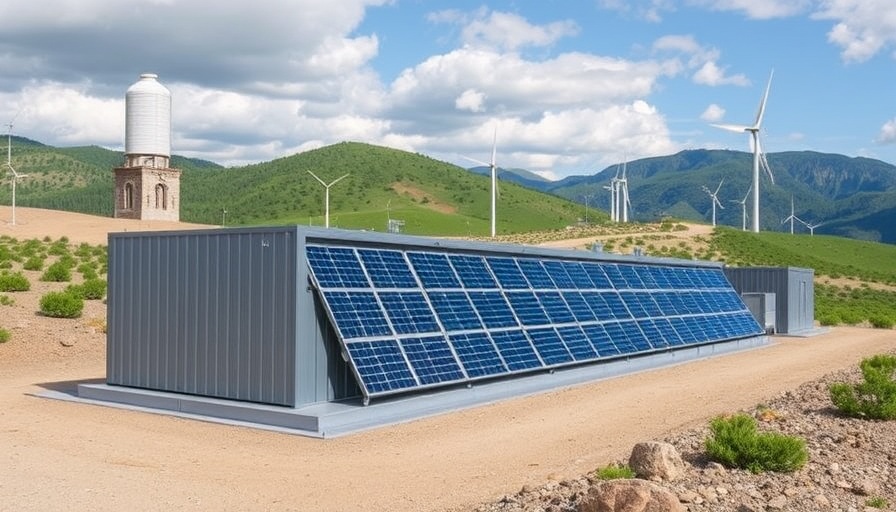
The Need for Reliable Energy Storage
In our ever-evolving world that increasingly depends on renewable energy sources like wind and solar, a reliable energy storage solution is paramount. These sources are intermittent; they work when the sun is shining or the wind is blowing, but energy demand doesn't always align with these natural patterns. Thus, energy storage systems become indispensable in bridging the gap, ensuring a steady and reliable power supply.
Recent Breakthroughs in Energy Storage Technology
Various innovative technologies are making strides in the energy storage sector. For instance, lithium-ion batteries, once the cornerstone of personal electronics, are now being optimized for grid storage. Beyond lithium, research is advancing into solid-state batteries, which promise higher energy densities, improved safety, and longer lifetimes. These developments not only enhance capacity but also empower consumers to harness their electricity more efficiently.
Using Collectively Sourced Energy
A recent shift towards decentralized energy systems recognizes the value of community-based energy storage solutions. Innovations like neighborhood battery systems enable households to store surplus energy collectively, allowing them to share power during outages or high demand periods. This democratization of energy not only enhances local resilience but also fosters a sense of community responsibility towards energy management.
Environmental Impact and Sustainability
The relationship between energy storage advancements and sustainability is increasingly important. By making the most out of renewable sources, effective energy storage minimizes the need for fossil fuels, reducing overall carbon emissions. Clean energy advocates emphasize how such technologies contribute to mitigating climate change, attracting environmentally-conscious consumers who prioritize sustainability.
The Future of Energy Storage Solutions
Looking ahead, notable predictions indicate that advancements in materials science and nanotechnology could further revolutionize energy storage capabilities. This might include the development of more economical and efficient supercapacitors or exploring the potential of organic materials for batteries. Companies and governments worldwide are focusing investments on these technologies to create a more robust energy landscape.
Why Knowing This Matters to You
Understanding these breakthroughs in energy storage is vital, especially for professionals and entrepreneurs. The future of energy storage directly affects both business operations and individual consumer choices. Knowledge in this area empowers stakeholders to make informed decisions regarding energy investments and sustainability practices in daily life.
As we stand on the brink of a technological revolution in energy storage, it is essential for individuals to engage actively with these developments. For instance, considering solar panel installation paired with energy storage solutions can significantly reduce dependence on the grid. Embracing these advancements is not just beneficial for the environment; it also creates economic opportunities and boosts energy security.
Ultimately, the innovations in energy storage do not merely represent technical achievements; they signify a shift in how we think about and utilize energy. As we embrace these technologies, we are not only ensuring a greener future but also laying the groundwork for a resilient and sustainable economic framework.
 Add Row
Add Row  Add
Add 




Write A Comment